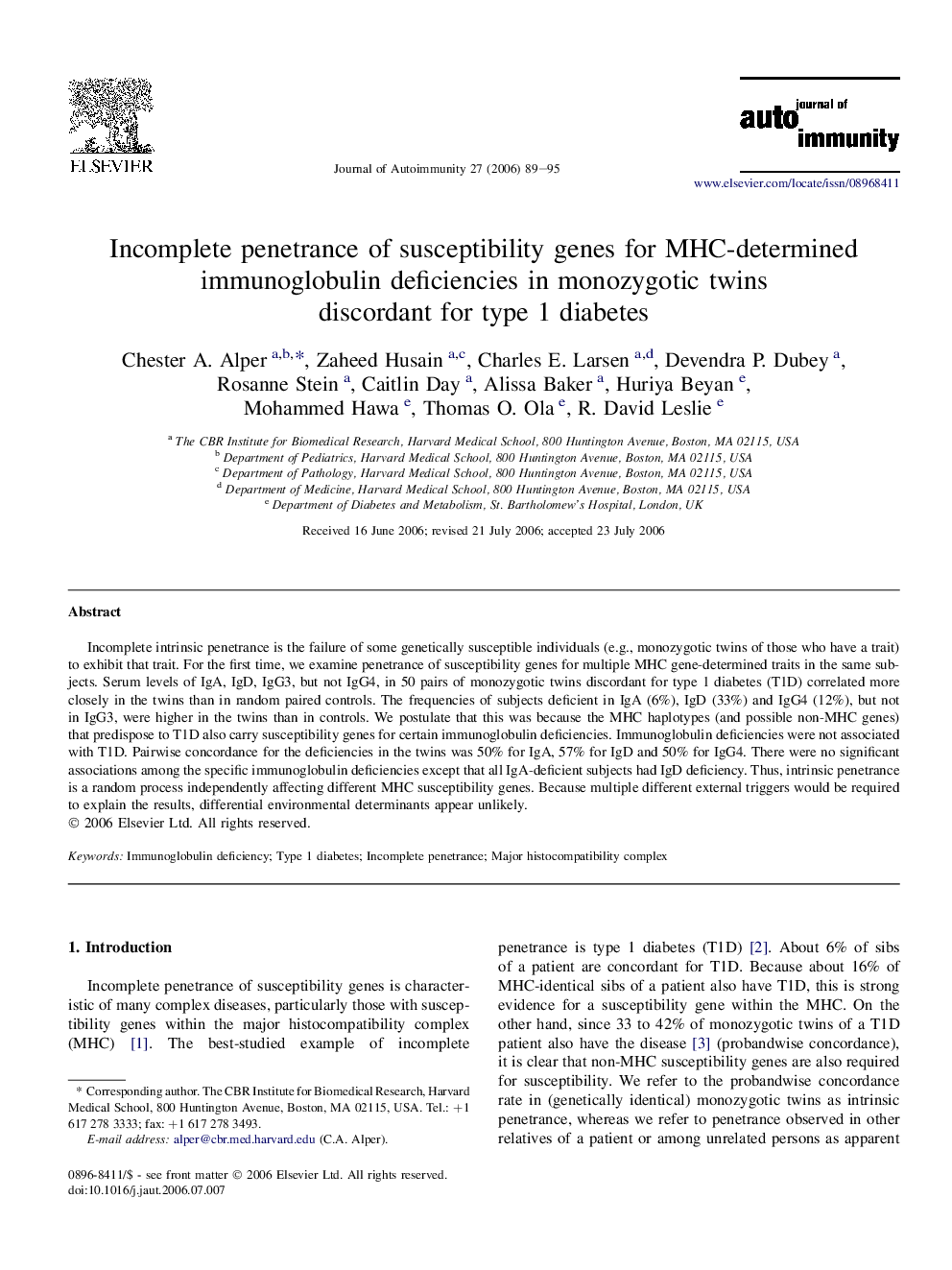| Article ID | Journal | Published Year | Pages | File Type |
|---|---|---|---|---|
| 3368577 | Journal of Autoimmunity | 2006 | 7 Pages |
Incomplete intrinsic penetrance is the failure of some genetically susceptible individuals (e.g., monozygotic twins of those who have a trait) to exhibit that trait. For the first time, we examine penetrance of susceptibility genes for multiple MHC gene-determined traits in the same subjects. Serum levels of IgA, IgD, IgG3, but not IgG4, in 50 pairs of monozygotic twins discordant for type 1 diabetes (T1D) correlated more closely in the twins than in random paired controls. The frequencies of subjects deficient in IgA (6%), IgD (33%) and IgG4 (12%), but not in IgG3, were higher in the twins than in controls. We postulate that this was because the MHC haplotypes (and possible non-MHC genes) that predispose to T1D also carry susceptibility genes for certain immunoglobulin deficiencies. Immunoglobulin deficiencies were not associated with T1D. Pairwise concordance for the deficiencies in the twins was 50% for IgA, 57% for IgD and 50% for IgG4. There were no significant associations among the specific immunoglobulin deficiencies except that all IgA-deficient subjects had IgD deficiency. Thus, intrinsic penetrance is a random process independently affecting different MHC susceptibility genes. Because multiple different external triggers would be required to explain the results, differential environmental determinants appear unlikely.
